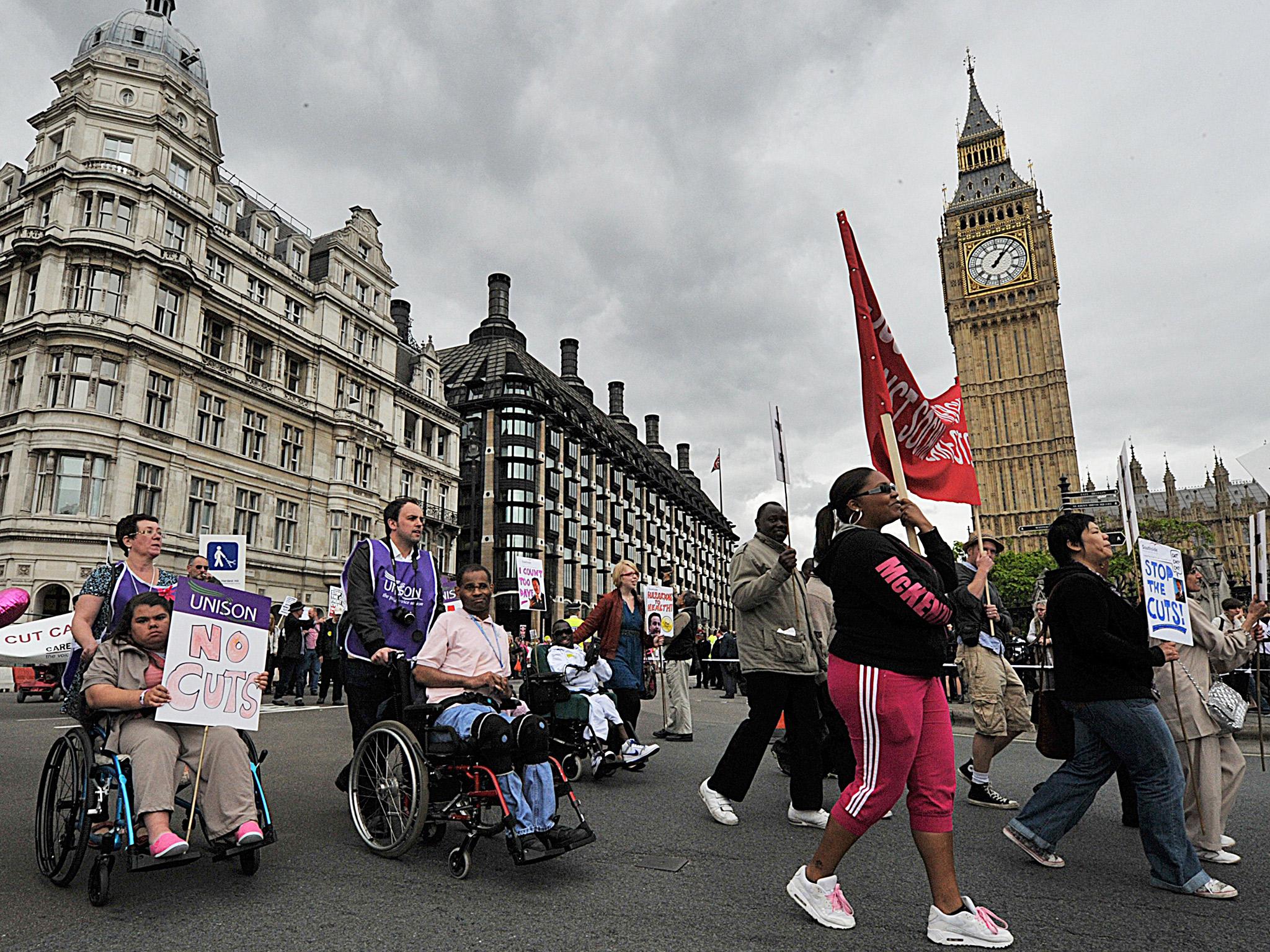Equality watchdog claims disabled people are treated as 'second class citizens' in UK
Watchdog says treatment is a 'badge of shame' on British society

Your support helps us to tell the story
From reproductive rights to climate change to Big Tech, The Independent is on the ground when the story is developing. Whether it's investigating the financials of Elon Musk's pro-Trump PAC or producing our latest documentary, 'The A Word', which shines a light on the American women fighting for reproductive rights, we know how important it is to parse out the facts from the messaging.
At such a critical moment in US history, we need reporters on the ground. Your donation allows us to keep sending journalists to speak to both sides of the story.
The Independent is trusted by Americans across the entire political spectrum. And unlike many other quality news outlets, we choose not to lock Americans out of our reporting and analysis with paywalls. We believe quality journalism should be available to everyone, paid for by those who can afford it.
Your support makes all the difference.The UK’s equality watchdog is calling for the everyday rights of disabled people to be strengthened and protected after claiming they are not being treated as “equal citizens”.
David Isaac, the chairman of the Equality and Human Rights Commission, said the lack of progress in strengthening legislation, especially in terms of accessibility, is a “badge of shame” on British society.
Mr Isaac told the BBC: "Disabled people currently are treated like second class citizens.
”The everyday rights non-disabled people take for granted, such as being able to access transport, housing, restaurants, theatres and sporting events, are still being denied.”
Selina Mills, a writer who is visually impaired, described her difficulty at struggling to get a taxi in London despite law instructing black cabs to be accessible.
“You can quote the Equality Act 2010 all you like, but people can still drive away, there's no way of enforcing it,” she told the broadcaster.
Mr Isaac was speaking after a report by the House of Lords found disabled people are “let down across the whole spectrum of life”, including in terms of access to public buildings and on public transport. The report, published in March, said disabled people are just an “afterthought” for the Government.
In response to the report, the Department for Work and Pensions said: “We're committed to ensuring disabled people live their lives free from discrimination.
“That's why we've strengthened the Equality Act to create a level playing field and ensure that the law properly protects them.”
Join our commenting forum
Join thought-provoking conversations, follow other Independent readers and see their replies
Comments